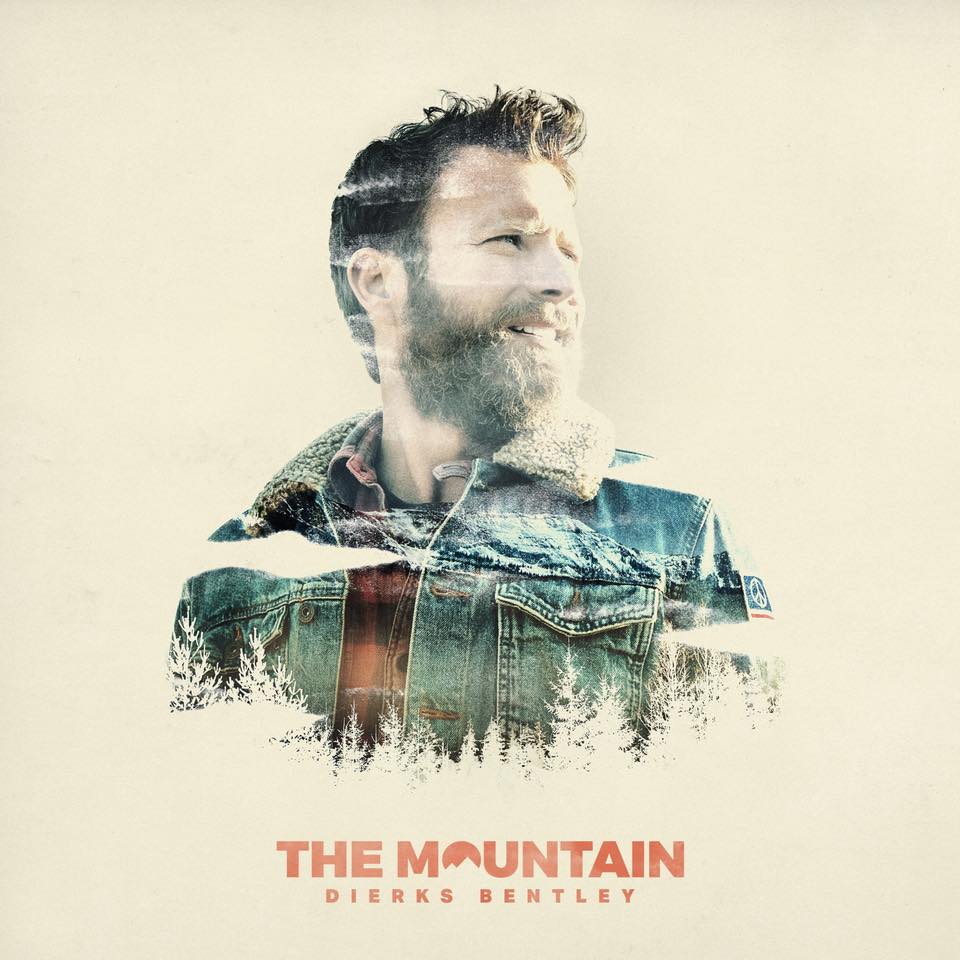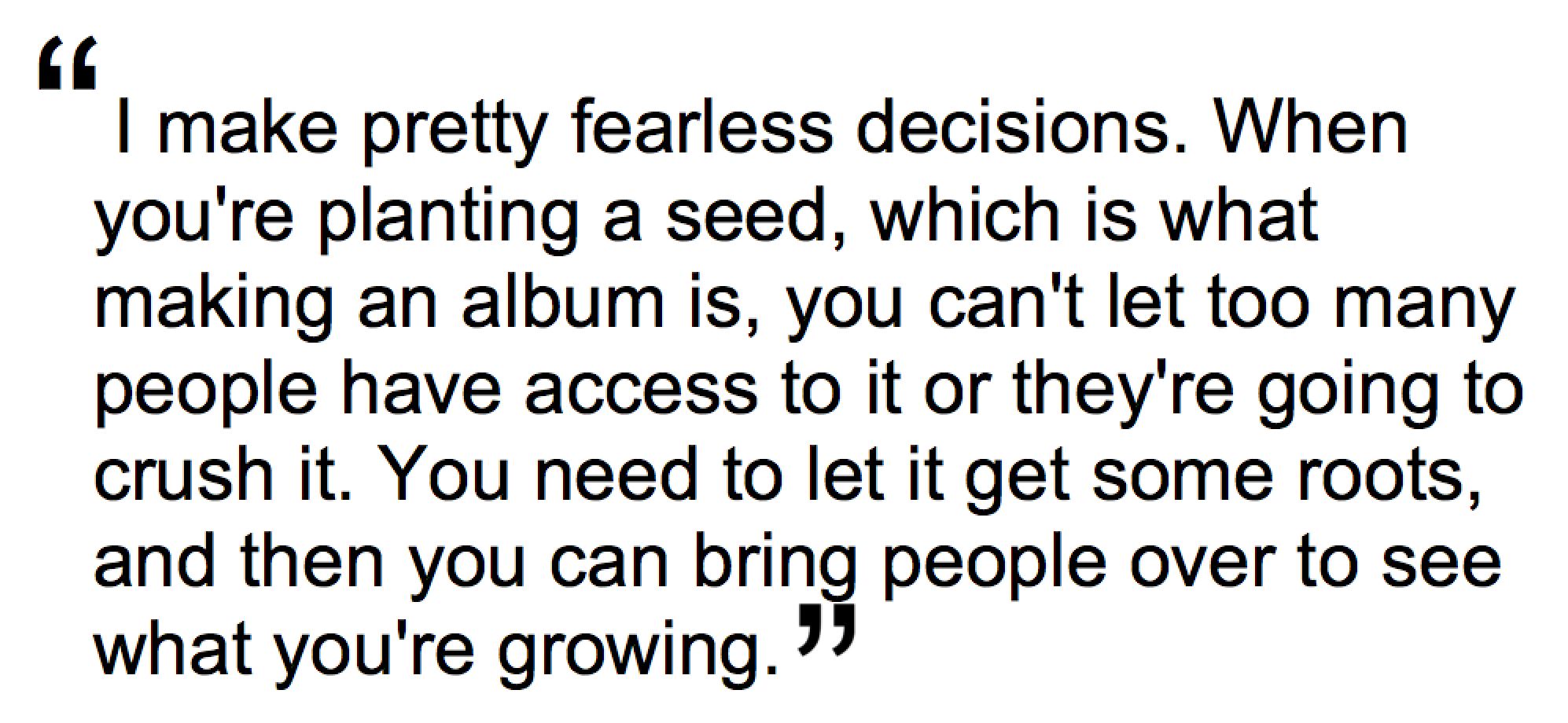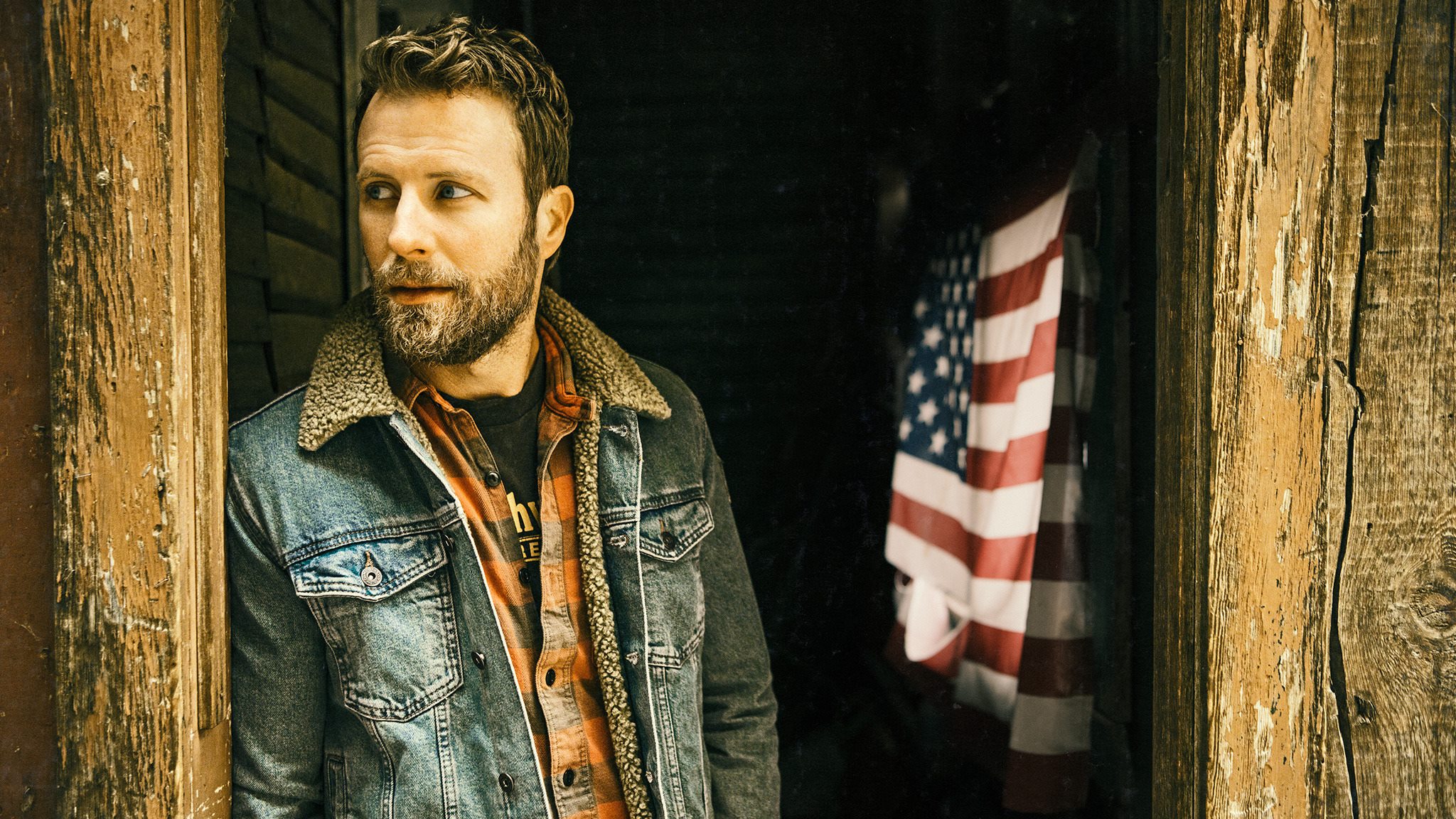
This is part two of a two-part series with MusicRow Magazine’s Sherod Robertson and multi-platinum selling singer/songwriter Dierks Bentley. Read part one here.
Dierks Bentley releases his highly anticipated ninth studio album, The Mountain, on Capitol Records Nashville today, Friday, June 8. Bentley, his co-writers and producers ventured to Telluride, Colorado to write and record the project, where the Rocky Mountains provided peace and inspiration. That vibe merged with his longtime themes of devotion to his family and fans to create The Mountain.
MusicRow Publisher/Owner Sherod Robertson recently caught up with Bentley at his writing room at Nashville’s Hutton Hotel to discuss planting creative seeds, fearlessly nurturing them, and growing them into a mountain.
Are there parallels between your new album and 2010’s Up on the Ridge?
There are, but I didn’t realize that going into it. Just like there were similarities between “Somewhere on a Beach” and “Drunk on a Plane.” But I didn’t realize it until I was doing the video for “Somewhere on a Beach” so I changed the whole video and made it a sequel video.
I never even thought about the ridge and mountain connection between those two until after I’d made the record. It’s like taking the Ridge record I made with Jon Randall and mixing that with my newer music with Ross Copperman. These two sounds are kind of like mixing together the albums Black and Up on the Ridge.
Jon Randall and Ross Copperman both produced this album. What did they each bring to the table?
It’s like putting together a hockey team. You’re bringing people with different strengths, different positions, and putting it all together. I feel like I had a really good team.
Ross brings so much youth, modernism, creativity and a great vibe. He’s just the happiest, most positive person I’ve ever been around. Nothing’s impossible and he’s always game for anything.
 And I’ve never met anybody who can speak to musicians like Jon Randall. We worked together on Black. He just has a crazy vocabulary and a real calmness in the studio– a real pro and loves to geek out on stuff.
And I’ve never met anybody who can speak to musicians like Jon Randall. We worked together on Black. He just has a crazy vocabulary and a real calmness in the studio– a real pro and loves to geek out on stuff.
I used to read about people having executive producers, and thought that was kind of odd. But Arturo Buenahora is involved in everything about the album. He’s your biggest champion, and he’s digging around Music Row for great songs. He’s helped me put together great bands and there to say “no” to any idea or song that’s not right. He’s completely unbiased and if it’s a song is part of his publishing company, he’ll let you know.
When deciding which songs to put on an album, do you test them on the live audience to see the reaction?
I do, but it can be tricky. I played “Drunk on a Plane” one time in a theater and the reaction was terrible. They were really quiet, and they didn’t get it. And I was like, “See, that’s not a hit.” Maybe it was hard to hear the words or I didn’t set it up very well. And it threw me off the song for a little bit. Playing a song live is definitely not the most trusted barometer of whether or not it’s a hit.
It’s your gut and you can ask people around you. It’s like the stock market, where if everyone knew the answer, everyone would be a millionaire. But a song is probably harder, because nobody—even your record label or professional consultants—no one knows. That’s what makes it great. It’s like there’s an intangible thing about a hit song that you cannot use math to discover.
You’ve taken a few stylistic detours during your career. Where do you fall on the pendulum of being completely fearless versus taking calculated creative risks?
That’s a great question. I’m definitely totally fearless but there can be a fault with that too. When I quit everything to make a bluegrass record I wasn’t thinking about the business or touring. Behind my back, people were saying I was crazy and would never headline a tour again. I didn’t know any of it at the time, because luckily, people I count on like my manager Mary Hilliard Harrington, kind of shielded me from that.
 I have a flip phone, so I don’t read Twitter or Instagram because it interferes with creating songs and albums. I want to put all my focus into this one thing I’ve been given a chance to do. How many people get to go to Mike Dungan’s office and try to get a record deal? I’m one of the few that’s got this great platform, and so to water down my work with my brain being filled with negativity, or thoughts about the business, or what other people are doing, or how radio’s going to react to it, it is not beneficial to making the best music. And it’s not being totally grateful for the platform I’ve been given. I just feel like I’m cheating everybody if I’m doing that.
I have a flip phone, so I don’t read Twitter or Instagram because it interferes with creating songs and albums. I want to put all my focus into this one thing I’ve been given a chance to do. How many people get to go to Mike Dungan’s office and try to get a record deal? I’m one of the few that’s got this great platform, and so to water down my work with my brain being filled with negativity, or thoughts about the business, or what other people are doing, or how radio’s going to react to it, it is not beneficial to making the best music. And it’s not being totally grateful for the platform I’ve been given. I just feel like I’m cheating everybody if I’m doing that.
I make pretty fearless decisions. When you’re planting a seed, which is what making an album is, you can’t let too many people have access to it or they’re going to crush it. You need to let it get some roots, and then you can bring people over to see what you’re growing. And still be protective of it, but you can allow other voices to be added. But at the end, it’s mine and so I guess I can live and die by my decisions.
And that’s something I’ve learned over time. The bluegrass record was the ultimate fearless decision. If I had been smart I would have made one song on it for radio. But I think since Up on the Ridge, I’ve really tried to make great albums and not focus on anything about a tour or writing a song that has a title that would sound good as a tour title.
So this is your ninth studio album with Capitol Records. I used to work for Mike Dungan back in the ‘90s at Arista. What’s your favorite thing about UMG Chairman and CEO Mike Dungan?
I am so sheltered from some of the drama at record labels on Music Row. I hear stories from other artists that are going through creative control issues—where they can’t even pick out the font on their album cover. And even big artists being told what songs to record.
With Dungan, it’s been nothing but a joy. He’s a record label president who loves music and the lifestyle. He’s fun. He loves his people. He’s like the Herb Kelleher of country music—the guy who started Southwest Airlines. He empowers the people around him. He does an annual event where the artists get together and play just for the staff. I’m not even allowed to bring my wife. It’s just to make it about the music one night a year, so that people remember why we’re doing what we do.
And he’s let me pick all my own singles. Over the years, I’ve learned the hard way that it’s better to listen to him and everyone at Capitol sometimes, than to just power your way through something. The biggest blessing I’ve had is that I side with him and I’ve had the support of that whole label, who have all been great people.
One other thing about Dungan, at some point he needs to start buying t-shirts that cover up his belly.
But that’s something else we can get into.

About the Author
Sherod Robertson is President and Owner of MusicRow Enterprises. He oversees all operations and develops strategic initiatives for MusicRow magazine, RowFax, and MusicRow's CountryBreakout chart. Robertson previously served as Director of Finance of Arista Records after beginning his career as Vice President of Finance and CFO at Reunion Records.View Author Profile




